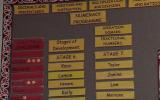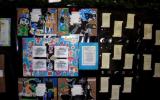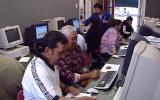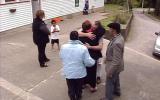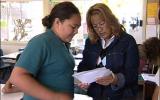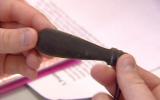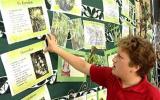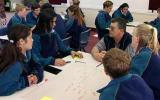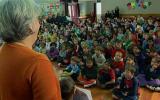Section navigation
Video stories
-
Celebrating success at Hiruharama School
 28/06/2011
28/06/2011
Filed under: Productive partnerships | Ako | Effective teachers
At Hiruharama School, the process of learning is expressly communicated to all the students, and they are the primary communicators of their learning to whānau. (Extract from ‘Te ManaKōrero: Relationships for Learning’, 2007).
-
Filed under: Productive partnerships
Family and whānau are a critical audience for students’ work and achievement. Creating opportunities for the celebration of learning is a feature of the Integrated Studies programme at Opunake Primary School. (Extract from ‘Te ManaKōrero: Relationships for Learning’, 2007).
-
Filed under: Productive partnerships
As part of the process of listening to the whānau and their objectives for their children’s education, opportunities may arise for schools to offer their resources to assist whānau in advancing their own learning, as well as that of their children. (Extract from ‘Te ManaKōrero: Relationships for Learning’, 2007).
-
Whānau involvement
 28/06/2011
28/06/2011
Filed under: Productive partnerships | Effective leaders
The need for whānau involvement does not diminish as students advance through schooling, and schools need to ensure their relationships with whānau extend beyond the immediate family. Regular communication is key. (Extract from ‘Te Mana Kōrero: Relationships for Learning’, 2007).
-
Whānau involvement at Hiruharama School
 28/06/2011
28/06/2011
Filed under: Productive partnerships | Effective leaders
Whānau and community involvement in school life can and should extend beyond supporting the school at cultural and sporting activities, and lead to engagement which directly supports students’ learning. At Hiruharama School, whānau are engaged at every level including strategic planning. (Extract from ‘Te Mana Kōrero: Relationships for Learning’, 2007).
-
Te Mana Kōrero: Culture counts 2
 28/06/2011
28/06/2011
Filed under: Productive partnerships | Identity Language and Culture | Ako | Effective teachers
Culturally responsive learning contexts are those where the learner can bring their own experiences into the classroom context. (Extract from ‘Te ManaKōrero: Relationships for Learning’, 2007).
-
Te Mana Kōrero: Culture counts 1
 28/06/2011
28/06/2011
Filed under: Identity Language and Culture | Ako | Effective teachers
Research shows that bringing cultural context into the curriculum affirms the students identity, and validates their cultural knowledge and knowledge of their whānau. (Extract from ‘Te ManaKōrero: Relationships for Learning’, 2007).
-
Relationships for learning - Te Mana Kōrero
 28/06/2011
28/06/2011
Filed under: Productive partnerships
The importance of building effective relationships between schools and whānau. (Extract from ‘Te ManaKōrero: Relationships for Learning’, 2007).
-
Impacting Māori student achievement outcomes
 28/06/2011
28/06/2011
Filed under: Ako | Effective teachers
Practitioners reflect on the impact of professional development that is focused on improving Māori learning outcomes. (Extract from ‘Te Mana Kōrero : Strengthening Professional Practice’, 2005).
-
Whānau and communities
 28/06/2011
28/06/2011
Filed under: Productive partnerships | Effective leaders
Relationships with whānau and communities. Research evidence shows that when schools develop relationships with whānau and communities around child learning, then the learning outcomes improve for all their students. (Extract from ‘Te Mana Kōrero : Strengthening Professional Practice’, 2005).






